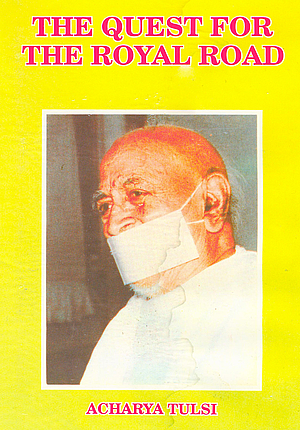Question
Does filtered water contain germs or is it free from germs?
Answer
Because some special chemicals are mixed in tap water, its colour, smell and taste gets changed. From that point of view, there is no harm in believing that it is free from germs. But we have got the information from the fields adjacent to the site where water is filtered. Due to carelessness on the part of the officials or dishonesty on their part, those chemicals are mixed in water in insufficient quantities. In such a situation, those who abstain from drinking water containing germs cannot use that water till they are sure that water is free from germs.
Question
Our culture and tradition considers egg as uneatable. Why? It is not a one-sided view that egg lead to excitement, lust and cruelty? It is possible to find these traits in those who do not eat egg and non-vegetarian food and absence of those traits in those who eat those things. Then there is the point about violence. But these days, they are producing lifeless egg. i When this is the case, can you dispel'our doubts?
Answer
Whenever anything is prohibited, it is done for some important reasons. Without any concrete reason, the question of prohibiting anything on a wide scale does not arise at all. One evident reason for prohibiting non-vegetarian food is that meat is no food for human beings. The structure of human body and their teeth is different from those of carnivorous animals. Therefore, meat cannot be the natural food for human beings.
It is necessary to avoid non-vegetarian food from the point of view of non-violence force. Even if the non-vegetarian people do not commit violence themselves, that type of food cannot encourage nonviolence in them. When the time comes, they do not hesitate to resort to the most despicable acts of violence in order to fulfil their needs.
The argument about excitement and lust also cannot be brushed aside altogether. Of course, exceptions can be found in every field. But there is no doubt that the food one eats does have its full effect on his body and mind. That is why physiologists lay more stress on sattvik food.
The question of violence arises with regard to vegetarian food also. But that is the unavoidable situation of life, because man required to eat atleast something. Just because it is unavoidable, violence associated with vegetarian food cannot be called nonviolence. But because that need cannot be avoided, vegetarian food has not been considered uneatable. Even in vegetarian food, some vegetables are tamasik and exciting and they have been prohibited.
As for the lifeless egg, I would say that egg is a non-vegetarian item, whether hatchable or unhatchable. Meat too has no life. If meat is uneatable, how would egg become eatable? Moreover, it is difficult to find out exactly whether it has life in it or not. Then he must also think about the point that permissiveness in one thing that opens the way for permissiveness in other things as well. In the process, what is not permissible also becomes permissible. From this point of view, even life-less egg should also be firmly prohibited. Prohibiting them would bring no harm. Instead, giving permission for them can raise many problems.
The last point about the answer to the question refers to the protection of cultural tradition. One may or may not realise what evil result non-vegetarian including egg can bring, but everyone knows that they are against our culture. Hence, under no circumstances should we give in to them.
Question
Some people consider milk also a non- vegetarian item and therefore avoid it. Is milk also a non-vegetarian item?
Answer
Indeed some people do believe that even milk should not be consumed, because it is produced in the body. If flesh and blood coming from the body are uneatable, how can milk be otherwise? Therefore, those people do not drink milk. That is their point of view. But generally, milk came to be included in vegetarian diet because it is meant for the babies. How would babies take milk if it were inedible? One may or may not take milk, but it is not a non-vegetarian diet.
 Acharya Tulsi
Acharya Tulsi
